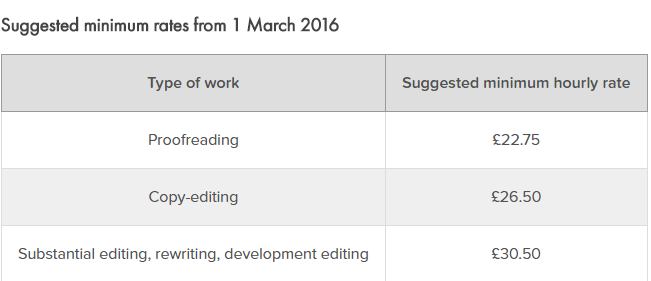I am not a published author myself – something I intend to rectify in the future – so the information in this post is based on things I’ve heard authors say about their experiences with freelance editors, my opinions after viewing their websites and posts, plus research I carried out when considering whether to become an editor (paying particular attention to the criticisms in the hope I might avoid some of the pitfalls).
Just because a freelance editor ‘says‘ they are qualified in copy/line/developmental does not make it so. Once upon a time, I thought I could copy edit – until a client pointed out that I was introducing errors. It is one of the reasons I opted to specialise in developmental editing. I can explain the intricacies of story arcs and writing techniques for hours on end (if you let me), but fathoming the use of an independent clause or a compound predicate grinds my brain to a halt.
Be aware that anyone can set up a website or Facebook page and call themselves a ‘professional’ editor.
Having spent months, and possibly years on your manuscript, writing, editing, rewriting, editing, and then editing a few more times for good measure, the last thing you want to do is rush into a contract with the first editor you come across who matches your budget without engaging in a little detective work.
- Do they offer the editing service you are looking for?
Assuming you are clear on which level of editing your manuscript requires, it is prudent to check the editor’s website to establish what their definition of developmental editing, copy editing etc is (they can and do differ between editors). What you are looking for is what this particular editor offers per service level.
- What level of experience does the editor have?
There is no formal academic requirement or professional organisation to satisfy when becoming a freelance editor. A person can quite literally wake up one morning, decide to become a ‘professional’ editor, and one website and a Facebook page later, they’re up and running and on the hunt for their first gig. There is absolutely nothing wrong with being new – we all have to start somewhere, after all – but you should consider their experience. I would expect a developmental editor to have a good knowledge of structure and technique, and a copy editor to have an excellent command of English grammar and punctuation, so take a look around their website, examine how they write, and see how they’ve come by these skills – you can find mine here. Also, check out any testimonials they may have received.
- What does the editor charge?
While it is true that a professional editor will charge thousands of pounds/dollars, often by the hour, there are editors who charge much less. New editors often charge a pittance as they endeavor to build their reputation and client base. If you are on a very limited budget, then these are the editors you might wish to seek out (which helps the editor gain experience and satisfies a limited editing budget, but please do assess their standards of editing and bear in mind they are new and still learning).
To put it in perspective, the Society of Editors and Proofreaders recommends the following rates (as a minimum), although you will notice that a high percentage of freelancers choose to charge by the word and that their charges are nowhere near the recommended rates (myself included).
 Source: http://www.sfep.org.uk/resources/suggested-minimum-rates/
Source: http://www.sfep.org.uk/resources/suggested-minimum-rates/
Affordable editing can be a viable option, I, along with several other editors I know of, offer low-ish prices, however, you really need to assess the editor’s skills. Affordable / cheap / budget editing should not equate to poor standards of work, although sometimes, the old adage of ‘you get what you pay for’ is true (and the reason you need to assess your chosen editor thoroughly).
- How does the editor present themselves in written (or verbal) communication?
Initial communication with an editor should give you a good idea of what to expect in future correspondence. Are they responsive to communication? Do you have to wait days for an answer? How knowledgeable are they in relation to any questions you may have asked? Do they ‘seem’ trustworthy and reliable?
I cannot stress how important it is to work with an editor who is not only experienced and knowledgeable but who you like and feel comfortable with. Likewise, the editor needs to feel comfortable about working with you. Developmental editing, especially, can entail several months of editing (by both parties), questions, and brainstorming. On occasion, the writer and editor may disagree about a character, scene, or even the use of a particular style of punctuation. You need to feel comfortable about approaching your editor. The last thing you should be doing is psyching yourself up for a battle, and likewise, I (and other editors) shouldn’t have to dread emailing a client.
[divider]
First contact
Some authors find the initial email daunting, but I promise you, we’re really not that scary. Introduce yourself, the genre and word count of your manuscript, what editing package you are considering, and enquire about sending them an excerpt of your manuscript for a sample edit.
Don’t be afraid to request a sample more than one editor, and take your time choosing. Publishing isn’t a race, it’s a time-consuming, but worthwhile, process. It’s your manuscript – your dream – and it’s better to ensure you have a top quality product before hitting the ‘Upload’ button. Editing is expensive, but hiring the right editor(s) from the outset will save you the inconvenience of withdrawing a poorly structured/edited book from sale, and then paying out for a second, or even third round of edits to make everything right.
First impressions count. If you want to be seen as a professional author – make it a good one.

Trackbacks/Pingbacks